What is the Nobel Prize, and how do you win it?
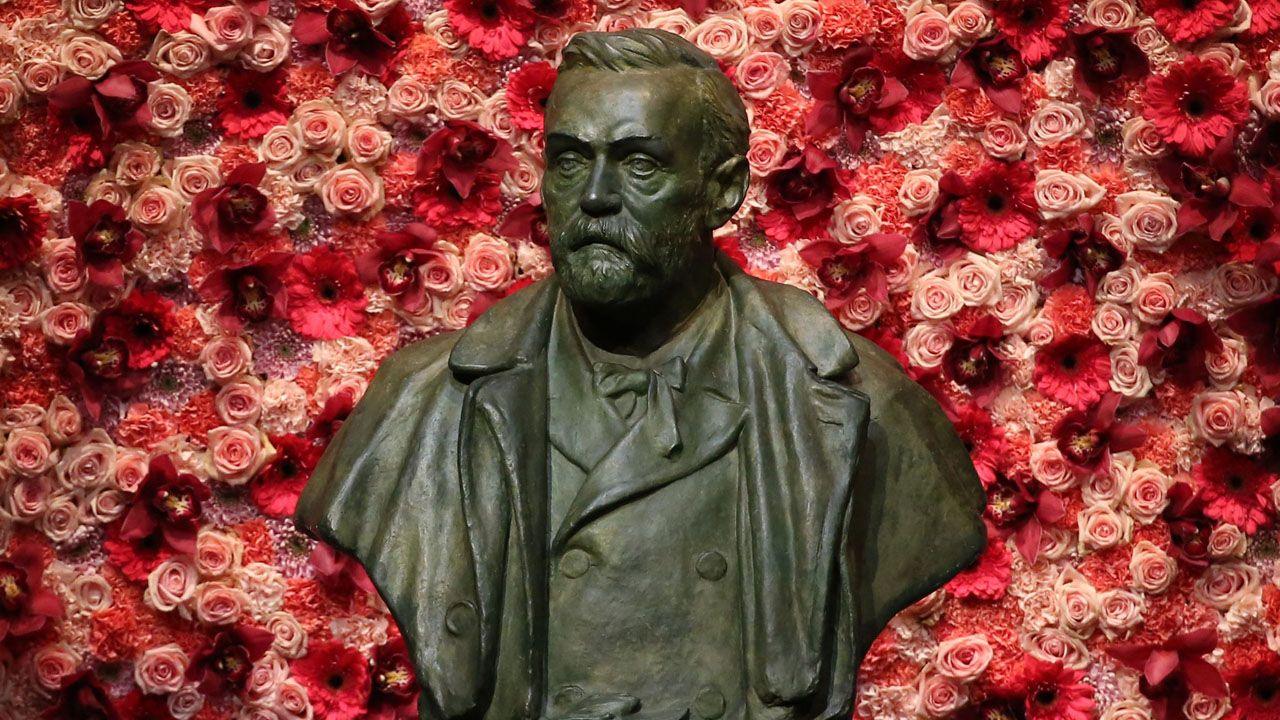
- Published
The Nobel Prize is one of the world's most important awards.
It celebrates the work of people or organisations around the world who have achieved amazing things in different areas, to help the world.
The Nobel Prize is split into six categories, and winners are usually announced each year in October by the Nobel Foundation in Stockholm, Sweden.
Since it began in 1901, more than 1,000 people and organisations have won a Nobel Prize, including human rights activist Malala Yousafzai, and famous physicist Albert Einstein.
Find out more about the Nobel Prize below.
- Published14 October 2019
- Published4 October 2021
What is the Nobel Prize?
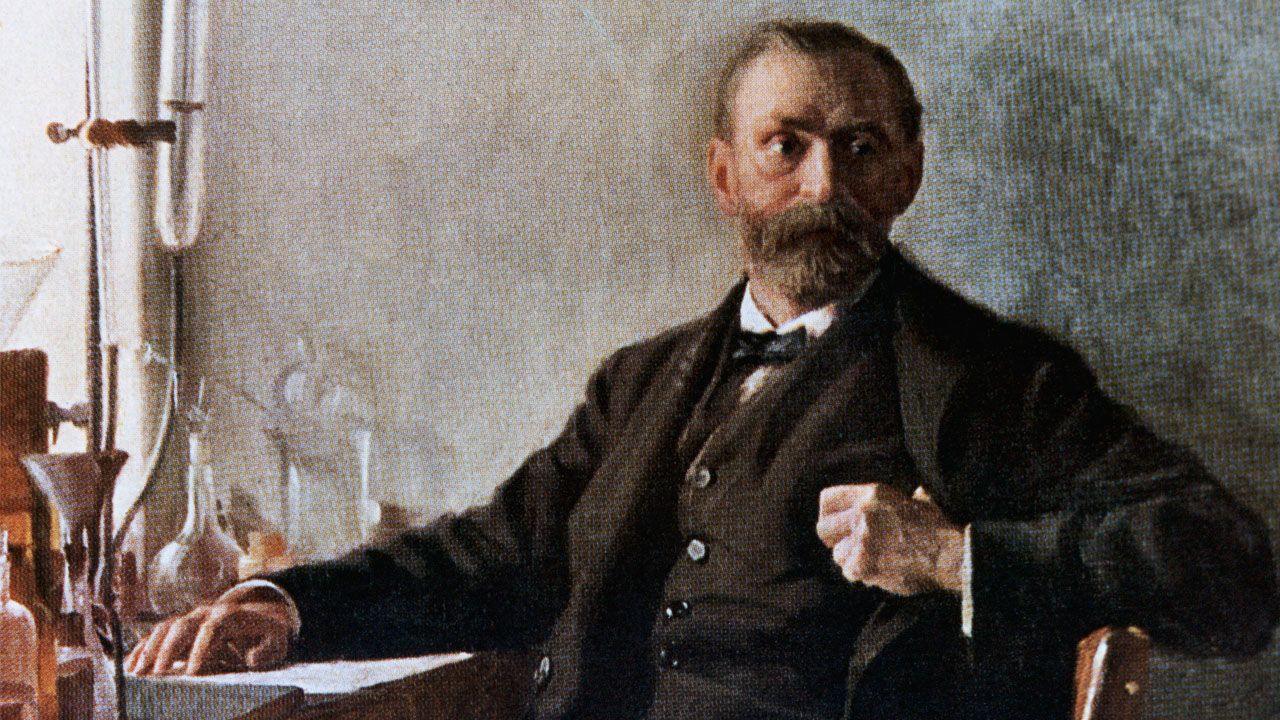
A painting of Alfred Nobel by Emil Osterman
The Nobel Prize was created by Swedish inventor, scientist and businessman Alfred Nobel.
Alfred was born in 1833, and is most well known for being the inventor of dynamite.
He also spoke six different languages, enjoyed writing poetry and had 355 patents - a licence that means others can't copy an idea - for different inventions he'd made.
He believed that people were capable of helping to make the world a better place through knowledge, science and human kindness.
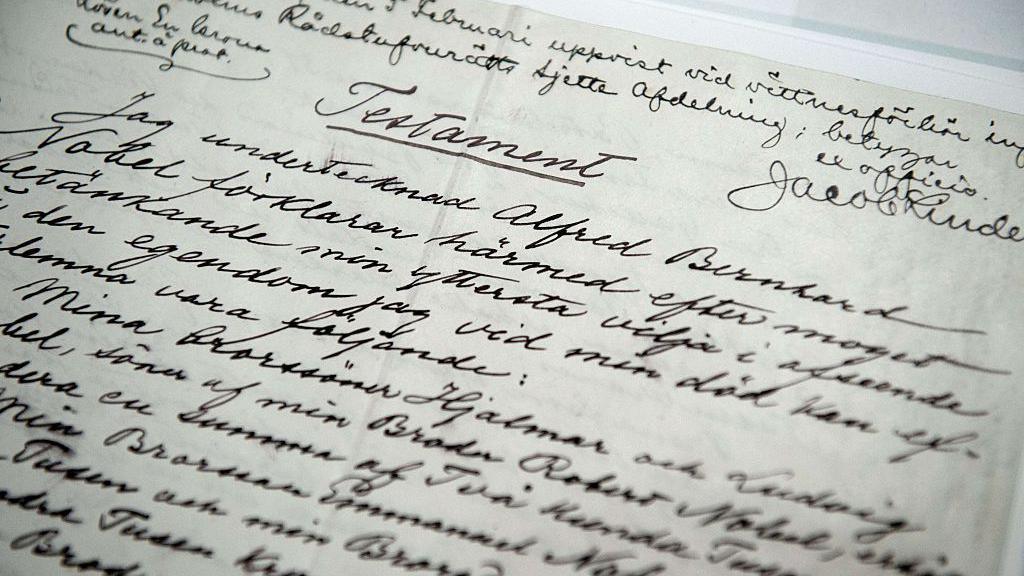
Alfred Nobel left the majority of his fortune to create the prizes in his will
Alfred became quite wealthy from his inventions, and on his death in 1895, Alfred asked for the majority of his money to be turned into: "prizes to those who, during the preceding year, have conferred the greatest benefit to humankind".
In 1901, the first Nobel Prizes were awarded. They were split into five categories:
Physics
Chemistry
Medicine/Physiology
Literature
Peace
A memorial prize in economic sciences was later added in 1968.
What do you get if you win a Nobel prize?
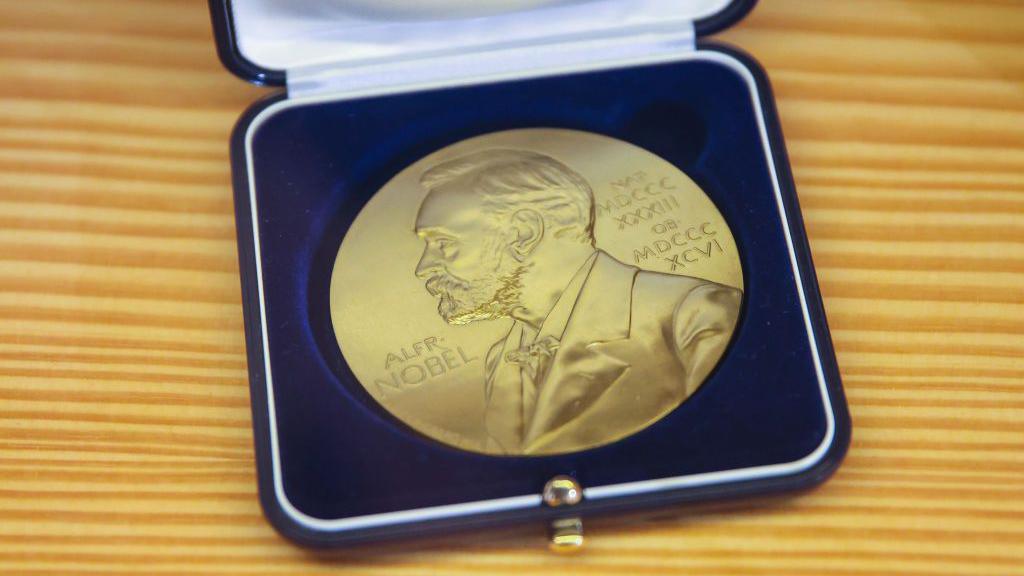
Winners of a Nobel Prize receive:
A golden medal - with the face of Alfred Nobel on it.
A personal certificate - acknowledging their achievement.
A cash prize.
If more than one person wins the award, the money is split between them.
The prizes are presented in a special ceremony on December 10, the anniversary of Alfred Nobel's death in 1896.
A person or organisation who wins a Nobel Prize is called Nobel Prize laureate.
The word "laureate" is a reference to laurel wreaths, which were awarded to victors as a sign of honour in ancient Greece.
How do you win a Nobel Prize?
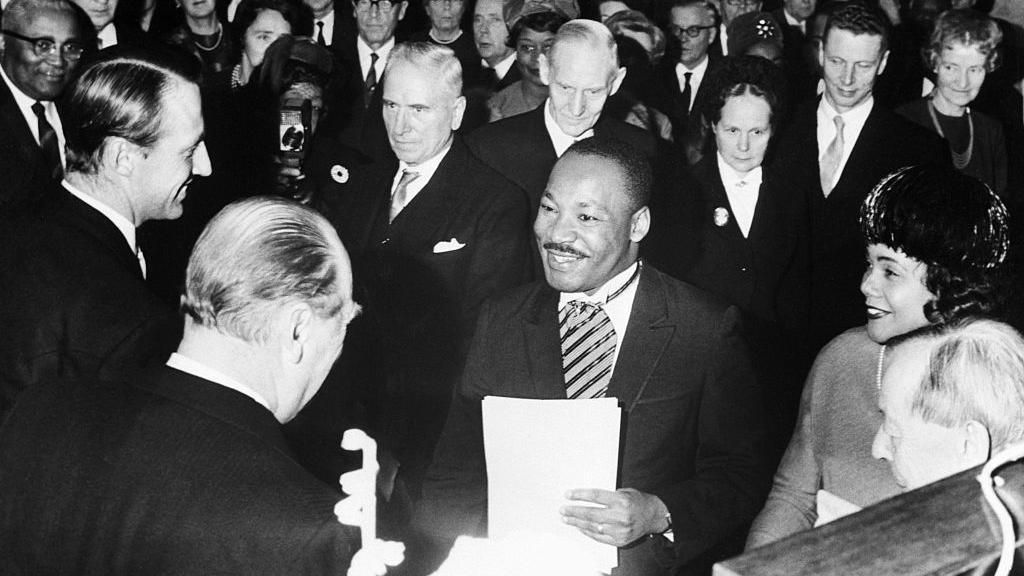
American civil rights activist Martin Luther King Jr. shakes hands with Norway's Prince Harald V and King Olav V in 1964 after winning the Nobel Peace Prize
Each year, thousands of experts, past winners and academics, are asked to pick who they think should win a Nobel Prize for the next year.
They must get their suggestion in by 31 January.
These experts are from lots of different countries and universities to help give a wide representation of views from around the world.
After receiving all of the nominations, the Nobel Committees responsible for the prize categories, spend months (sometimes even years) reviewing the hundreds of entries, before picking the winners.
The nominations are private, and people are forbidden from publicly sharing nominations for 50 years.
However, the nominator themselves can choose to reveal the person or organisation they have nominated if they wish to.
A person can not nominate themselves for a Nobel Prize.
Who has won a Nobel Prize?
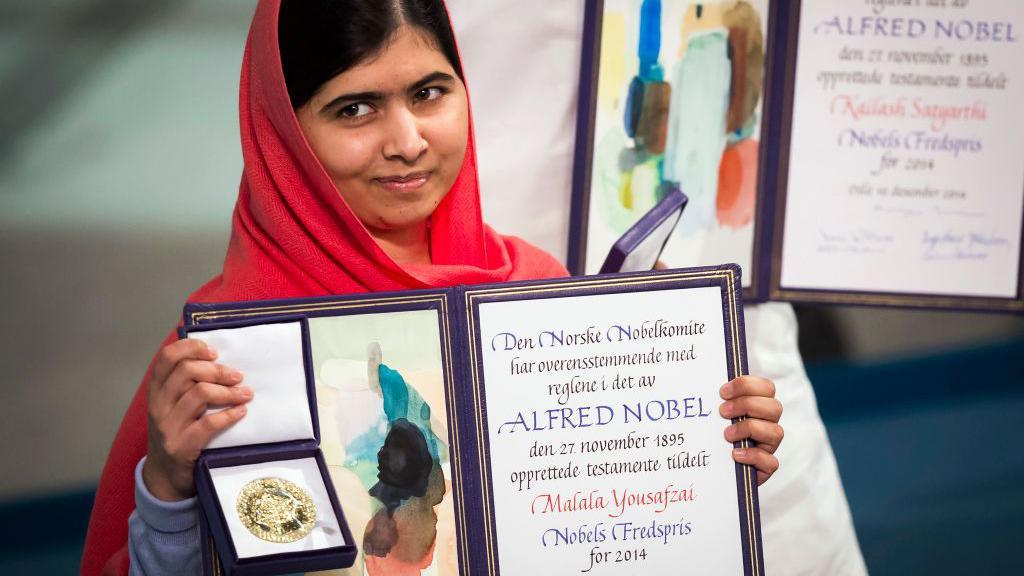
Malala Yousafzai became the youngest person to win a Nobel Prize in 2014
The youngest person to ever win a Nobel Prize, was Malala Yousafzai in 2014, who won the Peace Prize aged just, "for their struggle against the suppression of children and young people and for the right of all children to education".
The oldest person to win a Nobel Prize was John B. Goodenough in 2019, age 97. He won the Chemistry Prize "for the development of lithium-ion batteries".
Famous winners of Nobel Prizes include Martin Luther King Jr, who won a Peace Prize in 1964 "for his non-violent struggle for civil rights for the Afro-American population", and Albert Einstein who won the Physics Prize in 1921 "for his services to Theoretical Physics, and especially for his discovery of the law of the photoelectric effect".
A few people have even won a Nobel Prize more than once.
Famous scientist Marie Curie became the first woman to win a Nobel Prize in 1903 in Physics (alongside her husband Pierre Curie and Henri Becquerel) for their pioneering work developing the theory of "radioactivity" - a term she coined.
She also became the first to win a second Nobel Prize, in 1911 in the Chemistry category for her discovery of the elements polonium and radium, using techniques she invented for isolating radioactive isotopes.
